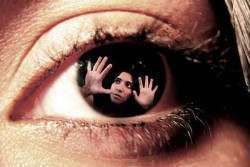Psychotic Major Depression
Major depression with psychotic features is categorized as a mental condition, and is characterized by the presence of severe depression in a person along with some form of psychosis. It is also known as psychotic major depression. This is a form of depression that is independent in terms of symptoms, of all other non-psychotic types of depressive disorders.
Possible Causes:
There is no known cause of the disorder, but it has been concluded that a person is more likely to develop symptoms of any form of psychotic illness or depression if the condition is present in the family history. According to surveys, it has been confirmed that psychotic major depression affects one in every two hundred and fifty people, which accounts for about 0.4% of the population.
Symptoms:
People with psychotic major depressionpresent different symptoms and signs that confirm the diagnosis of psychosis and depression. Psychosis is best described as the loss of touch with reality.
Some of its features include the following:
- Delusions: False ideas and beliefs regarding the surroundings and self
- Hallucinations: Perceiving false stimuli, such as hearing, feeling and seeing inexistent things.

We can help you find treatment for your psychotic major depression.
The degree and types of hallucinations and delusions that can be experienced in this disorder are directly related to the cause of depression. Records have shown that some people may feel that they are being told that they are worthless, or urging them to end their lives. This may even lead to false ideas and beliefs, which may include believing that one is suffering for a terminal medical condition.
According to advanced research, it has been confirmed that psychotic major depressionis actually a very severe type of major depression, but psychotic features and symptoms may also be present in patients suffering from moderate and even mild depression.
Delusions are one of the most prominent features of psychotic major depression whereby the person believes in theories and existences that are untrue and incorrect. Delusions may even include false visual or audio phenomena. Patients of psychotic major depression may also experience episodes of guilt through these delusions, and have the constant feeling that they are being paid special attention; they are being judged or even scrutinized. The guilt induced by these delusions may force the patients to believe that they are being punished for any deeds committed in the past, or personal problems that they failed to solve.
Other forms of delusions may be associated with the belief of patients that there is something wrong with their bodies, such as the presence of a terminal medical condition or a disability. These conditions are not present in reality, but the patient strongly opposes this fact and continues to believe that something is altering his/her physical health. Delusions in case of psychotic major depression may or may not be rather obvious. It has been confirmed that delusions are more commonly observed in PMD patients than hallucinations. Hallucinations may also be present, but not in all patients suffering from the disorder. The most common form of hallucinations seen in patients of psychotic major depression are auditory hallucinations, whereby the patients hears voices and sounds that are not present in reality. Visual or physical hallucinations are not that common in psychotic major depression.
Some other symptoms associated with psychotic major depression include restlessness, inability or difficulty in sleeping at night with spontaneous episodes of waking up after sleeping. There is also a very high risk of suicides in psychotic major depression patients because of the false guilt and delusions. Patients may also have memory related problems.
Course:
The course of psychotic major depression can help distinguish it from other types of mental disorders. Most psychotic major depressionpatients have been known to report experiencing a first psychotic episode in early adulthood, usually between the ages of 20-40 years. During a life-time, psychotic major depressionpatients usually experience around four to nine episodes.
Diagnostic Criteria:
According to the DSM-IV, patients need to demonstrate at least 6 of the following symptoms within a 2 week period to be diagnosed with psychotic major depression. To qualify for a positive diagnosis, the patients need to report at least 3 or 4 symptoms along with symptom number 1, 3 and 11. A total of six symptoms need to be present. These should also be dissimilar from symptoms patients experienced at a different time, for example previously as compared to the present.
The symptoms include:
- Having a depressed mood throughout the day almost daily
- Noticeably decreased or increased sex drive
- Loss of pleasure or loss of interest in all or most activities throughout the day nearly daily
- Significant weight gain or weight loss, OR increase or decrease in appetite almost every day
- Hypersomnia (excessive sleeping) OR insomnia (loss of sleep) almost everyday
- Psycho-motor agitation (quick movements) OR retardation (slow movements) to an extent that people start noticing
- Loss of energy or fatigue experienced almost every day
- Feelings of excessive guilt (probably delusional) or feelings of worthlessness almost every day (these feelings are of a great intensity)
- Indecisiveness or loss of concentration experienced almost every day
- Thoughts of dying keep recurring and suicide thoughts and ideas keep coming to mind. These don’t include fears about dying. Suicide plans or attempts also become apparent
- Hallucinations or delusions
- Intense daydreaming of an increased frequency
Treatments:
Tretment consists of a combination of medication and psychotherapy. Hospitalization may become necessary in patients who show major symptoms of psychosis and who are suicidal. The symptoms cause severe distress to patients and also to the family members of the patient.
References:
http://www.nlm.nih.gov/medlineplus/ency/article/000933.htm
DSM-IV The Diagnostic and Statistical Manual of Mental Disorders, Fourth Edition
Gelenberg AJ, Thase M, Markowitz JC, Freeman MP, Rosenbaum JF, Trivedi MH, et al. APA.Practice guidelines for the treatment of patients with major depressive disorder





